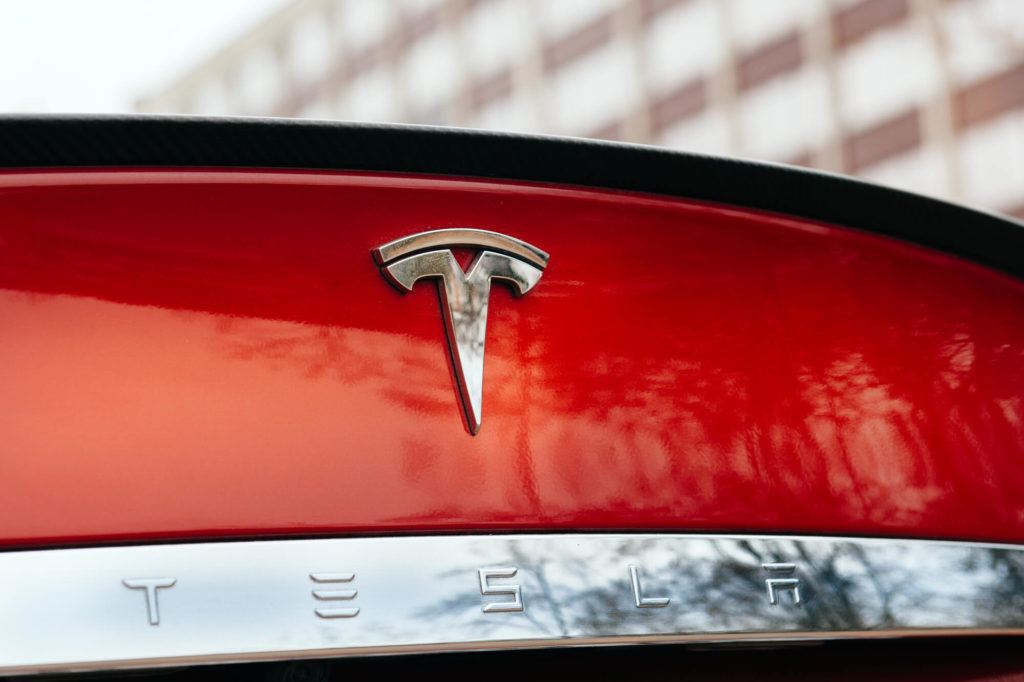Business
AI revolutionizes the automotive industry
In 2018, automotive companies employing AI only grew by 3%. Meanwhile, it’s predicted that by 2024, the value of AI in the auto industry and cloud services will grow to $10.74 billion. Waymo and Tesla are getting into AI as they have developed a prototype that has gone through basic testing. Tesla’s autopilot software can check your destination without having to instruct it.

The thought of having driverless cars came up in the 1970s so the idea isn’t as new as it might seem to be. Over the years, AI-powered cars have been depicted in the movies and have been a strong part of our imaginations.
While the idea has been quite exciting, the work done on this matter wasn’t substantial until now. This is because driving a car doesn’t involve following a set of rules or algorithm; rather it requires learning.
Even in 2018, the automotive companies employing AI only grew marginally by three percent. However, it has been predicted that by 2024, the value of AI in the automotive industry and cloud services will rise beyond $10.73 billion. An IHS report reveals that the install rate of AI systems in vehicles was eight percent in 2015 but it is expected to grow to 109 percent by 2025.
AI taking the driving seat
Before the automotive industry allows AI to take the wheel, they want to put it first in the co-pilot’s seat. It is a perfect choice to power the vehicles with advanced safety features and letting the manufacturers, customers, and regulators be comfortable with the idea of AI getting the license to drive.
Waymo and Tesla are way ahead in developing a prototype and have even gone through basic testing. The only thing stopping them currently are the regulations. Tesla’s Autopilot software can even check your calendar and take you to the destination without you telling it.

Detecting and avoiding equipment failure
AI will help the automobile companies in manufacturing of the vehicles and management of the inventory. The quality control will also improve saving millions of dollars and preventing the companies from going bankrupt.
The costs can be unaffordable if a machine fails unexpectedly during the assembly line. AI-based algorithms have the ability to digest masses of data, detect anomalies, diagnose a problem, and predict if a breakdown is imminent.
The potential impact of integrating AI in manufacturing would be 20 percent more availability of the equipment, a 10 percent decline in annual maintenance costs, and 25 percent lower costs spent on inspection of the machinery.
Intelligent insurance risk assessment
Insurance companies are already looking for ways which will help in detecting or even reducing the risk involved in driving. AI has good news for the insurance customers too as it speeds up the process of filling a claim when an incident occurs.
AI can dig deep into the driver’s profile than just its driving history to evaluate the risk involved in his driving. From detailed medical assessment to a close eye on personal life, AI can find anything which can affect the driving ability of an individual.
The bottom line
The future is very promising for AI in the automotive industry. AI will help the companies in building better quality products and detecting the defects 90 percent better than human evaluation. The day isn’t far away when you’ll be looking for an autonomous driving car and making the purchase of a vehicle equipped with IoT.
(Featured image by DepositPhotos)
—
DISCLAIMER: This article expresses my own ideas and opinions. Any information I have shared are from sources that I believe to be reliable and accurate. I did not receive any financial compensation for writing this post, nor do I own any shares in any company I’ve mentioned. I encourage any reader to do their own diligent research first before making any investment decisions.

-

 Crypto3 days ago
Crypto3 days agoXRP vs. Litecoin: The Race for the Next Crypto ETF Heats Up
-

 Biotech2 weeks ago
Biotech2 weeks agoVytrus Biotech Marks Historic 2024 with Sustainability Milestones and 35% Revenue Growth
-

 Biotech11 hours ago
Biotech11 hours agoSpain Invests €126.9M in Groundbreaking EU Health Innovation Project Med4Cure
-

 Crypto1 week ago
Crypto1 week agoRipple Launches EVM Sidechain to Boost XRP in DeFi
























